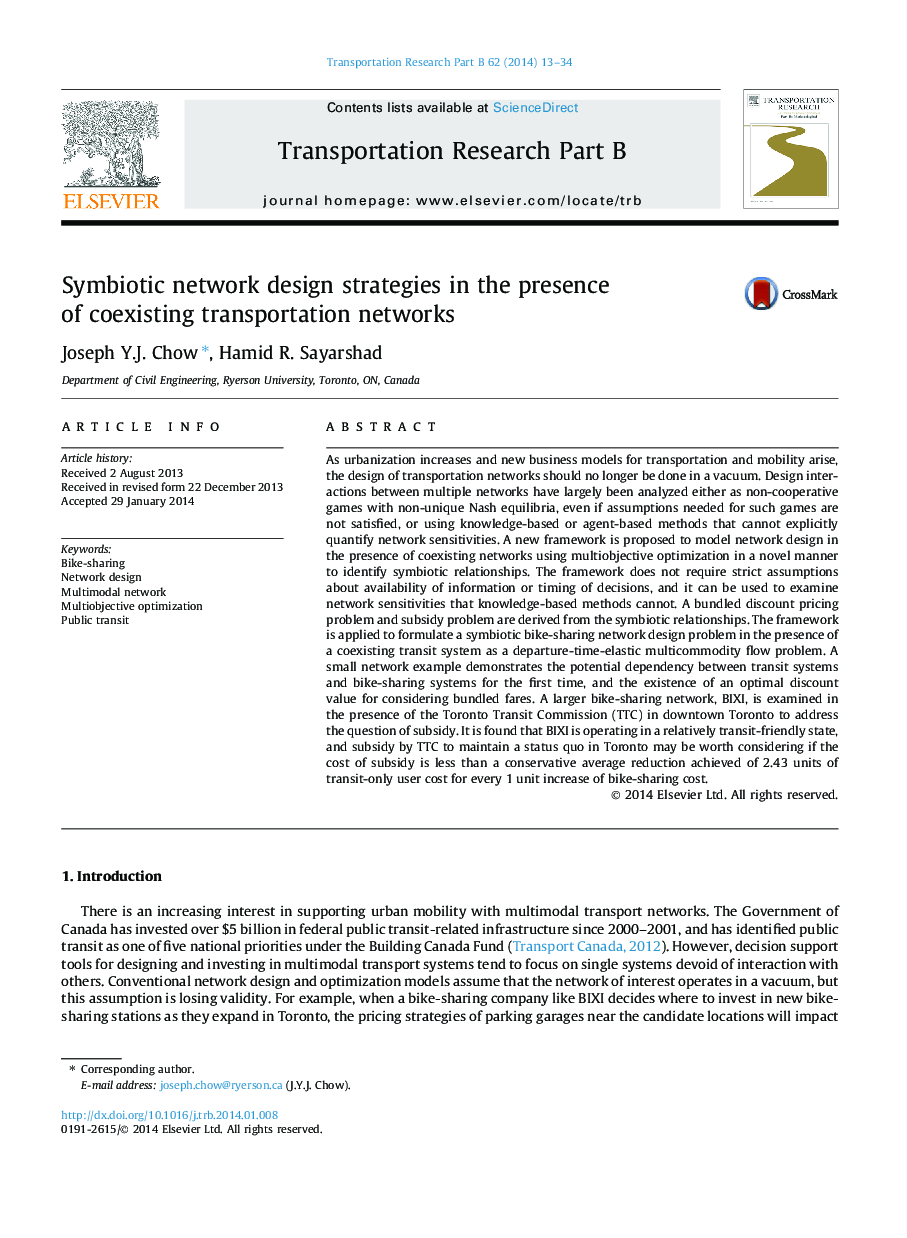| Article ID | Journal | Published Year | Pages | File Type |
|---|---|---|---|---|
| 1131982 | Transportation Research Part B: Methodological | 2014 | 22 Pages |
•Proposed a new analytical framework for design of multiple coexisting networks.•Formulated two sub-problems derived from the symbiotic relationships.•Formulated a symbiotic bike-sharing network design problem with coexisting transit.•Illustrated the model and discount problem with a benchmark network.•Addressed whether Toronto Transit Commission should subsidize BIXI.
As urbanization increases and new business models for transportation and mobility arise, the design of transportation networks should no longer be done in a vacuum. Design interactions between multiple networks have largely been analyzed either as non-cooperative games with non-unique Nash equilibria, even if assumptions needed for such games are not satisfied, or using knowledge-based or agent-based methods that cannot explicitly quantify network sensitivities. A new framework is proposed to model network design in the presence of coexisting networks using multiobjective optimization in a novel manner to identify symbiotic relationships. The framework does not require strict assumptions about availability of information or timing of decisions, and it can be used to examine network sensitivities that knowledge-based methods cannot. A bundled discount pricing problem and subsidy problem are derived from the symbiotic relationships. The framework is applied to formulate a symbiotic bike-sharing network design problem in the presence of a coexisting transit system as a departure-time-elastic multicommodity flow problem. A small network example demonstrates the potential dependency between transit systems and bike-sharing systems for the first time, and the existence of an optimal discount value for considering bundled fares. A larger bike-sharing network, BIXI, is examined in the presence of the Toronto Transit Commission (TTC) in downtown Toronto to address the question of subsidy. It is found that BIXI is operating in a relatively transit-friendly state, and subsidy by TTC to maintain a status quo in Toronto may be worth considering if the cost of subsidy is less than a conservative average reduction achieved of 2.43 units of transit-only user cost for every 1 unit increase of bike-sharing cost.
